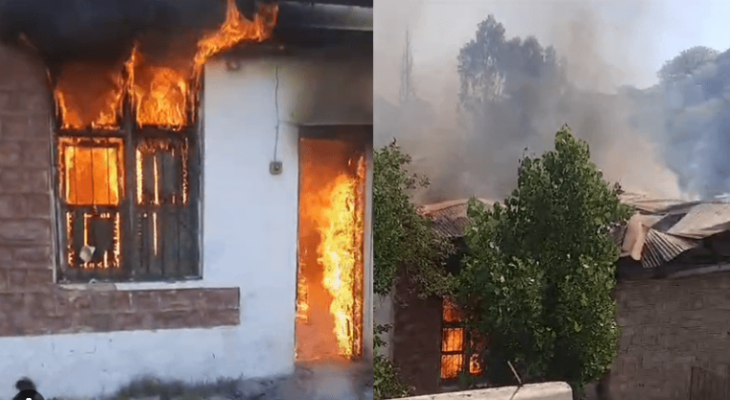On the globe of world oil energy, is Pakistan the new kid? This might be the case if the latest reports are accurate.
The last several weeks have brought about reports of a “massive” oil and gas find in Pakistan’s offshore area from both domestic and foreign media. The discovery may include the world’s “fourth largest” oil and gas reservoir, based on certain estimations. That would affect the game in a number of ways.
With approximately 300 billion barrels of crude oil, Venezuela now holds the biggest oil reserves, followed by Saudi Arabia, Iran, Canada, and Iraq. The largest undeveloped shale oil deposits are thought to be in the United States. According to a research published by the US Energy Information Agency a few years ago, there are significant untapped shale oil and gas deposits in various other nations, including Pakistan, primarily in Balochistan.
However, it seems difficult, if not impossible, for Pakistan to retrieve them, especially considering the amount of money needed to find the asset and the current state of security in the province.
Tapping Pakistan’s offshore oil presents security and financial obstacles that loom big.
The current discovery was made public following a three-year, thorough geological survey performed together with a “allied nation.” The identity of that ally is up for discussion as it has not been made public. There are hints, nevertheless, that suggest Saudi Aramco might be the source.
According to reports from a top official, the study results confirmed the existence of abundant resources within Pakistani territory. It is also said that the survey revealed the exact position of the deposits.
It is noteworthy to mention that in March 2019, Pakistan’s offshore area may have yielded a significant discovery, as declared by Imran Khan, the prime minister at the time. Some even referred to the potential discovery as “Asia’s largest oil and gas reserve.”
But the announcement never appeared and Mr. Khan was forced to retract his statements. The Petroleum Division denied the former prime minister Imran Khan’s announcement, stating that the drill did not produce the expected findings, hours after he suggested there was a possibility of finding “massive reserves at the site by next week.”
The drill at Kekra-1 was being carried out by ExxonMobil, ENI, PPL [Pakistan Petroleum Limited], and OGDC [Oil & Gas Development Company Limited]. Drilling was done more than 5,500 meters below the surface, but no oil or gas reserves were discovered. DawnNewsTV was then informed by an official that the drilling process has now been abandoned.
Looking back, it appears that the statement was made hurriedly, possibly for political motives. It seems now that not all hopes were lost back then. With the support of a “allied nation,” a fresh attempt was made in 2021, when Imran Khan’s administration was still in power in Islamabad, to locate the asset within Pakistani territorial seas.
After three years of intensive surveys, it appears that the earlier effort is paying off. According to media reports, a senior, anonymous Pakistani official stated that the discovery presented a chance to profit from the “blue water economy” and that bids and exploration plans were being considered, potentially indicating a prompt start to exploration efforts. Could Pakistan, however, take advantage of this chance? According to analysts mentioned in the media, the country would need to devote a significant amount of time to fully utilize the newly discovered resources. They further stated that the exploration process alone would cost approximately $5 billion and that the extraction of reserves from the offshore area might take up to five years.
In his previous article on Oilrpice.com, Alex Kimani stated that despite the announcement, oil majors do not appear to be hurrying to get a piece of the action. Major oil companies, including Total, Shell, and Eni, have left Pakistan under various reasons in recent years. Security is still a top priority.
A parliamentary committee was informed in July by Petroleum Minister Musadik Malik that oil majors in Pakistan were not particularly interested in exploring for offshore oil and gas. “In areas where companies search for natural gas and oil, they have to spend plenty of money to maintain protection for their employees and assets,” Mr. Malik told the committee, emphasizing that the decision ultimately boils down to security and risk against reward. He also emphasized that the expense of security is a huge deal-breaker. Furthermore, Pakistan’s security has fallen short of expectations.
It will be interesting to see how Pakistan responds to this. The mission is difficult given the current state of affairs. Once more, the problem is not a shortage of assets below the surface; rather, it is how to extract assets from below.
On this matter, oil experts have long held differing opinions. For many years, some people—such as the late Matthew Simmons—have insisted that oil is a limited resource and that the world will eventually run out of it.
Some, like as the writer, have believed for many years that there is an abundance of resources underneath the surface. Above the surface are the true problems. The process of extracting valuable assets from underground is being hampered by geopolitics and conditions above ground.
To Keep Updated Visit & Follow our Facebook Page Or Our Website




